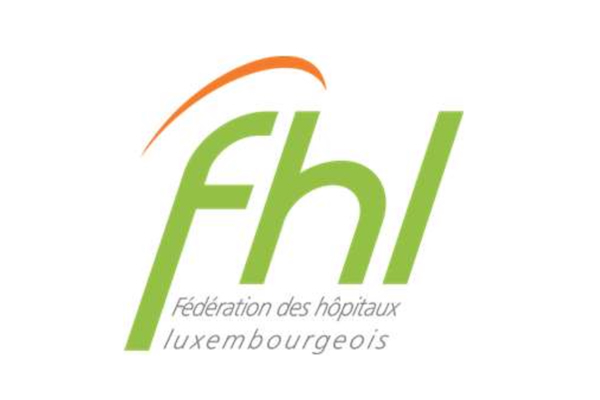
On Monday 24 November 2025, the Luxembourg Hospital Federation of Luxembourg Hospitals (Fédération des Hôpitaux Luxembourgeois - FHL) held a press conference at its premises in Bertrange, which focused on “ensuring access to high-quality healthcare for all”.
The press conference featured contributions from Dr Marc Berna, Acting President of the FHL (Director General of HRS), Sylvain Vitali, Director of the FHL, Dr Guy Berchem, Member of FHL Board (Medical Director of CHL), Dr René Metz, Member of FHL Board (Director General of CHEM), and Dr Gaston Schütz, Member of FHL Board (Director General of Rehazenter).
The FHL members noted a mix of positive and negative aspects in relation to structural and economic aspects of the Grand Duchy’s healthcare system and delivered the following key messages:
• Healthcare is a public good because it guarantees quality of life, productivity, stability and resilience.
• It must not be purely market-driven.
• Hospitals are central actors in the system, increasingly connected with general practitioners and closer to the people.
• Greater integration also means more digitalisation in the interest of patients and professionals.
• Hospitals play a central role in research and training, which is essential for sustainable recruitment.
• We guarantee equitable access to medicine for all.
• We ensure continuity of care.
• We prioritise quality over profit.
In his introduction, Dr Marc Berna said: “The current system is good but under pressure.” He noted that the current system – public, solidarity-based and universal – has proven its worth and contributes to the country’s stability and resilience and that it is essential to guarantee cohesion and safety of care in a changing context. Dr Marc Berna highlighted issues relating to an ageing population and the increasing healthcare needs of the country, as well as occasional shortages of talent, the recent renouncement of AMMD/CNS agreements and the importance of upcoming political decisions.
Sylvain Vitali highlighted that deregulation has the potential to destabilise funding and equitable access to care and emphasised that universal access must be maintained, refuting the idea of a two-tier or multi-speed system. He noted that system stability depends on hospital cooperation and adherence to national planning and that primary care is crucial. He said: “We need a strong and reliable system.”
Dr Guy Berchem remarked that it was necessary to promote and strengthen the complementary and collaborative role of care networks and highlighted the advantages of extra-hospital care - offering greater proximity, reduced waiting times (availability, accessibility), appropriate facilities and the separation of urgent and elective care - but emphasised that a fully liberalised extra-hospital sector was not desirable.
Both Dr René Metz and Dr Gaston Schütz noted that ethical obligations must be observed with economic considerations not taking precedence over public health. They stated medical companies must be owned and managed exclusively by the practising professionals, with no third-party involvement.
Delivering the FHL’s conclusions, Dr Marc Berna emphasised the importance of the health sector’s work force and that without sufficient personnel “there is no care”. He stated it was necessary to strengthen the sector’s attractiveness and that increased efforts in the areas of training and research are essential. He added that the FHL want tools that reduce administrative burden and improve coordination and that an effective system is one that listens to and involves the patient.
In closing, the FHL called for more efficient planning, faster project implementation, decentralisation adapted to healthcare needs, maintaining hospital sector standards (quality, safety, attractiveness) and the integration of primary, secondary and tertiary care.








